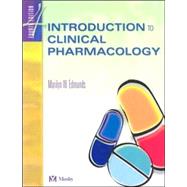
| General Principles | |
| The Nursing Process | |
| Legal Aspects Affecting the Administration of Medications | |
| General Pharmacologic Principles | |
| Medication Administration: Lifespan and Cultural Modifications | |
| Self-Care: Over-the-Counter Products, Herbal Therapies, and Drugs for Health Promotion | |
| Preparing and Administering Medications | |
| Mathematics And Calculations | |
| Review of Mathematical Principles | |
| Mathematical Equivalents Used in Pharmacology | |
| Calculating Drug Dosages | |
| Drug Groups | |
| Allergy and Respiratory Medications | |
| Antiinfective Medications | |
| Antivirals, Antiretrovirals, and Antifungal Medications | |
| Antineoplastic Agents | |
| Cardiovascular and Renal Medications | |
| Central Nervous System Medications | |
| Gastrointestinal Medications | |
| Hematologic Products | |
| Hormones and Steroids | |
| Immunologic Agents | |
| Analgesic, Musculoskeletal, and Antiarthritis Medications | |
| Topical Preparations | |
| Vitamins, Minerals, and Electrolytes | |
| Bibliography | |
| Glossary | |
| Disorders Index | |
| General Index | |
| Table of Contents provided by Publisher. All Rights Reserved. |
The New copy of this book will include any supplemental materials advertised. Please check the title of the book to determine if it should include any access cards, study guides, lab manuals, CDs, etc.
The Used, Rental and eBook copies of this book are not guaranteed to include any supplemental materials. Typically, only the book itself is included. This is true even if the title states it includes any access cards, study guides, lab manuals, CDs, etc.